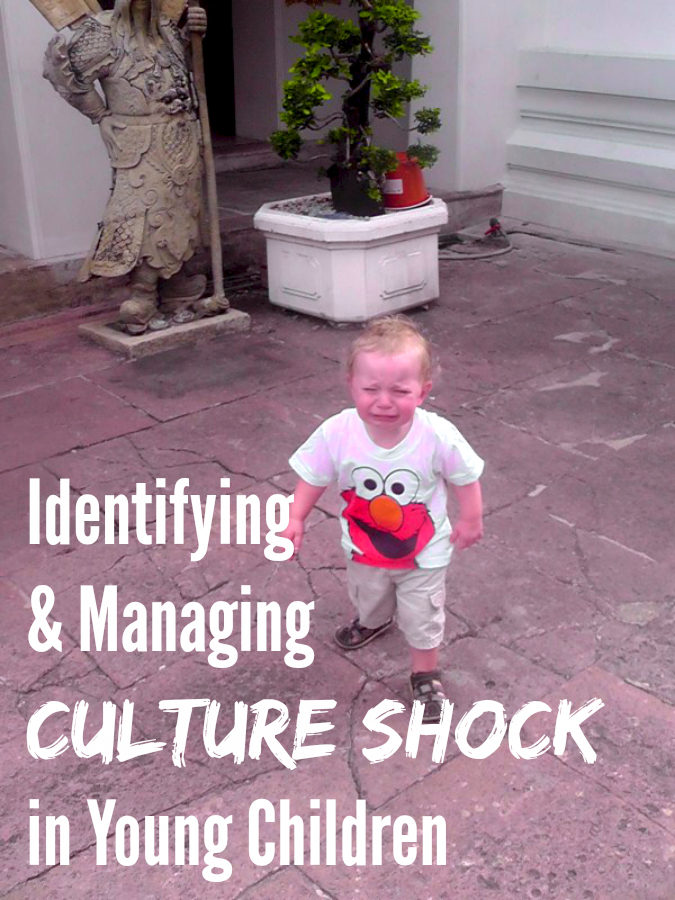

Travel Tips for Dealing with Culture Shock: Adjusting smoothly to new environments is crucial for a positive travel experience. Navigating unfamiliar customs and social norms can be challenging and overwhelming for travelers. However, with the right preparation and a flexible approach, experiencing culture shock can become an opportunity for personal growth and cultural understanding. This guide provides essential strategies to smoothly adapt to new environments during your travels, helping you avoid pitfalls and make the most of your experiences. This article will discuss how to overcome cultural differences and practical tips for adapting to various cultural norms and situations. We will delve into the causes and effects of culture shock, providing concrete strategies for adapting to new surroundings. Our focus is on providing specific actions, examples, and practical guidance to make your trip as enjoyable and stress-free as possible.
Understanding Culture Shock
The Impact of Culture Shock on Travelers
Culture shock is a common experience for travelers venturing into unfamiliar environments. It’s a complex emotional response that can involve feelings of disorientation, frustration, and even isolation. The adjustment process can be tough for travelers and involves feelings of disorientation and alienation. This can stem from variations in customs, communication styles, and overall societal norms. Understanding the stages of culture shock is essential in proactively managing this common experience. One frequent consequence of culture shock is the inability to adapt to new environments. It can hinder the ability to appreciate and interact with local cultures, potentially leading to negative experiences for both the traveler and the host community. The degree of shock can significantly vary depending on individual differences and the extent of cultural disparity between the traveler’s home culture and the destination.
Identifying the Triggers
The triggers for culture shock are diverse and can be categorized broadly into several key areas. A significant trigger is often the differences in communication styles. Travelers might encounter varying levels of formality, nonverbal cues, or even language barriers. Different social customs like greetings, dress codes, or personal space can also cause considerable discomfort. Navigating unfamiliar public transportation systems, unfamiliar food, and different dining etiquette can all contribute to the frustration of adapting to a new environment.
Managing Expectations and Research
The ability to manage expectations before a trip greatly mitigates the impact of culture shock. Proactive research is crucial. Learning about local customs, traditions, and etiquette can help preemptively address potential difficulties. Understanding the historical context of the region can help alleviate anxieties and feelings of isolation.
Adapting to New Dining Customs
The Importance of Dining Etiquette
Dining is a significant part of social interactions in many cultures. Understanding the importance of dining etiquette is crucial for navigating the cultural landscape. Different cultures have varying customs regarding the order of courses, the manner of eating, and the use of utensils. Misinterpretations of these nuances can lead to awkward or even offensive situations. These situations can stem from differences in dining etiquette. Being aware and respectful of these customs can foster greater social interaction and understanding. Understanding local dining customs can contribute significantly to a positive travel experience.
Practical Strategies for Handling Unfamiliar Customs
If you find yourself in a situation with unfamiliar dining customs, the best approach is to observe and learn. Pay attention to how locals interact and behave during meals. Mimic their actions and etiquette, which helps you adjust to new environments. If you’re unsure about something, politely ask a local or a restaurant staff member for guidance. Avoid criticizing or judging local customs, as this is usually a surefire way to create discomfort.
Avoiding Cultural Misunderstandings During Meals
One common trigger of culture shock is dealing with diverse dining habits in other cultures. Avoid assumptions about what constitutes appropriate behavior at a meal. Before your trip, researching local customs will help avoid potential misunderstandings. Be open to trying new foods. Learning to appreciate different culinary experiences will help you understand and enjoy local traditions. This can be a vital part of your journey.
Communicating Effectively Across Cultures
Improving Cross-Cultural Communication Skills
Effective communication is essential for building rapport and fostering understanding in new environments. Knowing the basics of the local language can significantly enhance communication. However, it’s equally important to understand nonverbal cues, such as body language and facial expressions. These aspects can vary greatly from culture to culture. A few basic phrases from the local language, combined with a willingness to listen attentively, will invariably strengthen your interaction with the local community. Proactive engagement demonstrates respect and helps bridge potential cultural gaps, particularly language barriers.
Utilizing Language Learning Apps and Resources
Leveraging language learning apps and resources is a great way to learn fundamental phrases and expressions in a new language. This is a practical approach to bridging cultural gaps. These apps, like Duolingo or Babbel, can equip travelers with basic greetings, polite expressions, and common phrases. Utilizing online resources or language learning apps will contribute greatly to effective communication with local people.
Adapting Your Communication Style to Different Cultural Norms
Adapting your communication style involves being mindful of cultural norms. This involves adjusting your tone, vocabulary, and body language to be more sensitive to the local context. Actively listening and showing respect for different viewpoints will help in navigating difficult conversations.
Embracing Cultural Immersion
Actively Engaging with the Local Community
Cultural immersion is key to a truly enriching travel experience. Seek opportunities to interact with locals. Engage in conversations, participate in local events, and visit cultural attractions. These actions will enhance your understanding and appreciation of the destination’s cultural nuances. These encounters are not only an excellent opportunity to learn about different cultures but also to cultivate relationships that create a deep understanding of local environments.
Respecting Local Customs and Traditions
Respecting local customs and traditions is essential for a positive travel experience. Be mindful of dress codes and social norms in the community you visit. Dress respectfully when visiting religious sites. Show sensitivity to local practices and try to understand their significance, which enhances your cultural immersion.
Participating in Local Activities
Participating in local activities, from cooking classes to hiking tours, is a great way to engage with the local community and experience the culture firsthand. These immersive activities will offer unique insight into the local way of life.
Practical Tips for Handling Culture Shock
Building a Support Network
Creating a support network is often a critical factor in adjusting to a new environment. Connecting with other travelers, hostel staff, or local guides can provide valuable support. This can prove to be a beneficial way to navigate the unfamiliar and potentially difficult situations that may arise from culture shock. Support from fellow travelers, locals, or staff can help you feel less isolated and better equipped to handle potential challenges during your travels.
Prioritizing Self-Care
Prioritizing self-care is just as critical in navigating culture shock. Make time for relaxation, engaging in activities you enjoy, and maintaining a healthy diet. These actions help maintain a sense of well-being and resilience during challenging times. Mental and physical well-being is crucial when dealing with new cultural environments.
Accepting and Embracing Uncertainty
Accepting that there will be uncertainty and that some experiences may not go exactly as planned will greatly reduce stress. Anticipating the possibility of unforeseen difficulties will improve your resilience to the unforeseen aspects of your trip. Flexibility and a positive attitude are key in handling the unexpected or the unanticipated.
Utilizing Technology to Facilitate Travel
Finding Reliable Information Online
Utilizing online resources for travel planning and information is indispensable for any traveler. Staying connected allows travelers to anticipate and mitigate potential issues. Researching local customs, attractions, and transportation options beforehand can alleviate anxiety when navigating unfamiliar environments.
Utilizing Language Translation Apps
Utilizing language translation apps can greatly aid communication in areas where your knowledge of the local language may be limited. These apps provide real-time translation, enhancing your ability to communicate with people in different cultures. These apps are especially helpful for navigating situations where a shared language does not exist.
Maintaining Communication with Loved Ones
Staying connected with family and friends during your travels can provide comfort and support. Regular communication helps you maintain a sense of connection, reduce feelings of isolation, and address any potential concerns or issues that arise during the journey. These connections will offer emotional support that is often crucial during a period of adjustment.
Building Resilience and Adaptability
Practicing Mindfulness and Self-Awareness
Practicing mindfulness and self-awareness is a powerful tool in building resilience to culture shock. It is essential in managing feelings of disorientation and frustration that may arise during travel. Being mindful of your own reactions and emotions can help you navigate difficult situations with greater grace and understanding. Self-awareness will help maintain your perspective in stressful or unfamiliar situations.
Seeking Professional Guidance (Optional)
Seek support from a therapist or counselor before or during your travels. Preparing to deal with culture shock can involve seeking support from mental health professionals. Preemptive planning might also be useful in handling the potential complexities of cultural adjustment. They can help you prepare for dealing with challenging experiences or navigating difficult cultural situations. Sometimes a professional can offer unique approaches to help you better understand and manage the various reactions you may experience in different cultural environments.
Embracing New Experiences with an Open Mind
Embracing new experiences with an open mind is essential for a positive travel experience. This includes being open to trying new foods, engaging in unfamiliar activities, and interacting with people from different cultural backgrounds. Openness helps you understand and appreciate the unique aspects of different cultures and societies.
Specific Strategies for Different Environments
Adapting to Urban Environments
Navigating urban environments can involve handling new transportation systems, unfamiliar public spaces, and potential safety concerns. Research the area thoroughly before arriving and learn about local customs regarding public spaces and safety. Understanding urban environments beforehand is essential for smooth transitions.
Adapting to Rural Environments
Rural environments often present a different set of challenges. Understanding local customs, transportation options, and cultural sensitivities in rural settings is crucial. Consider the importance of building trust and respectful interaction when interacting with the local community.
Adapting to Remote Locations
Remote locations frequently entail different levels of technology access and communication challenges. Prioritize the use of local guides, or staff, for support.
FAQ
How can I better understand the cultural nuances of a destination before I travel?
Before traveling to a new destination, it’s highly recommended to research and learn about the local customs, traditions, etiquette, and social norms. Explore online resources like cultural guides, travel blogs, and even documentaries dedicated to the region. This proactive approach will significantly help you anticipate potential cultural differences and approach interactions with greater sensitivity. Engage in conversations with locals or fellow travelers who have insights into the region’s societal aspects before you go. These discussions will offer invaluable insights and perspectives.
What are some specific strategies for adapting to different dining customs in new environments?
When faced with unfamiliar dining customs, the key is to be respectful and observant. Pay close attention to how locals interact during meals. Observe the sequence of dishes, the manner of eating, and any specific etiquette rules. If unsure about something, it’s always better to err on the side of caution and ask a local or a restaurant staff member. Researching the local dining culture prior to your trip is crucial for understanding dining practices. This preparation will help ensure a smooth and enjoyable dining experience.
In conclusion, navigating culture shock during travel requires proactive preparation, cultural sensitivity, and a flexible mindset. By embracing the unfamiliar, respecting local customs, and engaging with the local community, travelers can transform a potentially challenging experience into a profoundly enriching one. This guide provides practical strategies to ease the transition. For deeper exploration and additional travel tips, check out our other resources. Let the adventures begin!